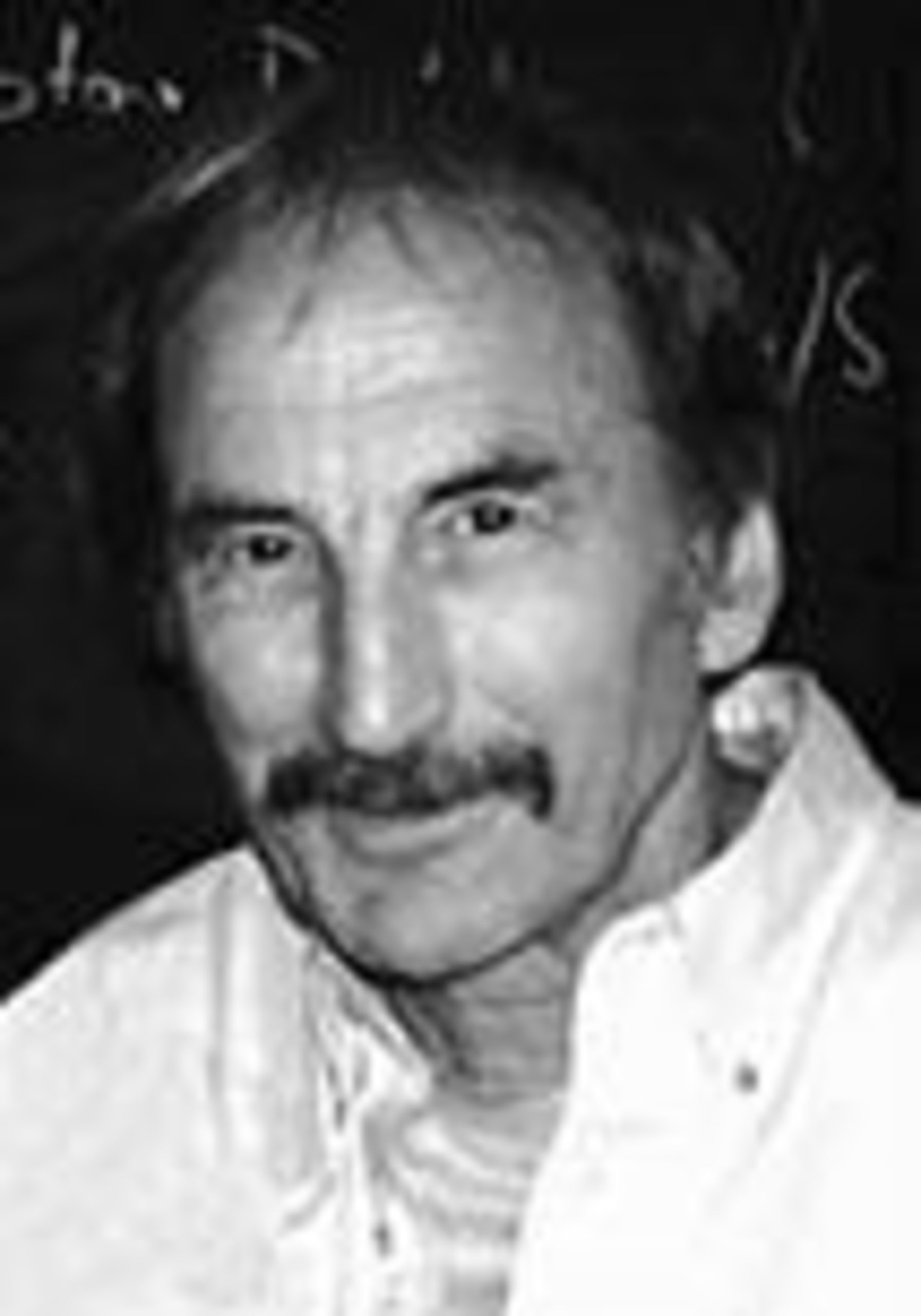In Memoriam
Prof. Dr. Karl-Klaus Conzelmann
23.01.1955
† 23.03.2025
The Society of Virology bids a deeply sad farewell to its long-time member and winner of the 1995 Frosch Prize, Prof. Dr. Karl-Klaus Conzelmann.
As an esteemed and long-standing Professor of Experimental Virology at the Max von Pettenkofer Institute and the Gene Center of the Ludwig-Maximilians-Universität München (LMU), he not only enriched our academic life, but also inspired many generations of students.
From 1999 to 2022, Klaus Conzelmann headed a highly active scientific virology research group at the Max von Pettenkofer Institute and the LMU Gene Center. His great commitment to research and teaching was characterized by exceptional expertise, passion and remarkable dedication. With his friendly yet demanding manner, he was able to convey complex topics in an understandable way. His numerous publications and his inspiring teaching will be remembered for a long time to come.
In the 1990s, Klaus Conzelmann pioneered the establishment of a new branch of research, reverse genetics for negative-strand RNA viruses, including rabies viruses, measles viruses and influenza viruses. All negative-stranded RNA viruses that are still artificially produced today are based on this visionary molecular technology. Furthermore, insights from his research group contributed significantly to the understanding of the viral components necessary for the late phase of rabies virus replication. His ideas and research also helped to clarify the question of how cellular factors of innate immunity, such as RIG-I, can recognize the RNA of invading viruses and, above all, distinguish them from cellular RNAs. Klaus Conzelmann has also always strived for interdisciplinary applications of his research work: For example, he and his colleagues developed various non-infectious vectors for rabies viruses in which the envelope glycoprotein of the virus was removed to enable trans-synaptic tracing of neuronal circuits. By incorporating fluorescent proteins, these vectors made it possible for the first time to map the "connectome" of neurons in the brain. A breakthrough in neurobiology!
We will miss Professor Karl-Klaus Conzelmann not only as an outstanding scientist, teacher and mentor, but also as a valuable human being whose kindness, wisdom and humor have accompanied many of us. Our deepest sympathy goes to his family, his friends and all those who had the privilege of working with him.
In grateful memory and silent remembrance
Prof. Dr. med. Oliver T. Keppler
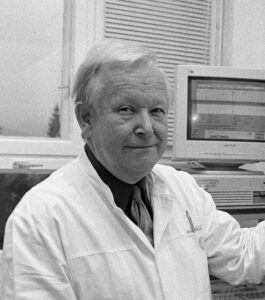
Prof. Dr. med. Axel Stelzner
22.07.1937 in Dresden
† 14.06.2024 in Göttern
Society of Virology mourns the loss of Prof. Dr. Axel Stelzner, who passed away on June 14, 2024 surrounded by his family in Göttern near Jena.
Axel Stelzner was born on July 22, 1937 in Dresden. He studied human medicine at the Friedrich Schiller University in Jena from 1955 to 1960. In 1962, he began his training as a specialist in medical microbiology at the Institute of Hygiene at the Friedrich Schiller University in Jena, which he completed in 1967. During this time, he obtained his doctorate in 1963 with an immunological study on properdin bactericides. From 1968 to 1980, Axel Stelzner headed the serological-immunological department of the Institute of Medical Microbiology at the Friedrich Schiller University Jena as a specialist and senior physician. He habilitated in 1971 with scientific work on the complement-binding reaction. In 1981, Axel Stelzner moved to the Central Institute for Microbiology and Experimental Therapy (ZIMET) of the Academy of Sciences of the GDR in Jena. There he headed the Department of Immunopathology, which was reorganized into the Department of Virology under his leadership. Starting with the political changes in the GDR in 1989, Axel Stelzner took on social responsibility and made a significant contribution to the extremely successful development of Jena as a center of science. In 1992, the Institute of Virology was founded at Jena University Hospital, which he headed until his retirement in 2002. At the same time, Axel Stelzner was also Head of the Department of Drug Testing at the then Hans Knöll Institute for Drug Research and Infection Biology in Jena for many years.
The scientific focus of the Department of Virology was on investigations into the molecular characterization of the pathogenesis of enterovirus infections under in vitro and in vivo conditions in the course of acute and chronic infections, including the development of therapeutic strategies. RT-PCR-based virus diagnostics of clinical samples has been established and routinely used in the context of enterovirus-related cardiomyopathies. With the founding of the Institute of Virology, it was now also possible to offer in-depth training in virology for students of the Faculty of Medicine and the Faculty of Biology and Pharmacy. In addition to his local tasks, Axel Stelzner has established many national and international contacts, which have made a significant contribution to promoting the scientific careers of his staff in times of profound social upheaval. Many of us owe him a great deal.
Axel Stelzner's retirement gave him the opportunity to become intensively involved in preserving the cultural and spiritual heritage of his Thuringian homeland. For many years, he was involved in the extremely successful restoration of the village church in Göttern, where he enjoyed playing the restored organ as a volunteer organist. As a thank you for saving the church in Göttern, Axel Stelzner was made an honorary citizen of his community.
He was also involved in the Rotary Club of Jena. In lectures, he vehemently drew attention to the dangers of infectious diseases, with the fight against poliomyelitis being particularly close to his heart.
We fondly remember Axel Stelzner as a committed scientist, pragmatic visionary and enthusiastic historian. Without him, there would be no sound virological research in Jena. Our thoughts are with his children and grandchildren.
Andreas Henke, Michaela Schmidtke, Roland Zell, Renate Egerer, Brigitte Glück and Andi Krumbholz
Photo: University of Jena, undated photo from 1999
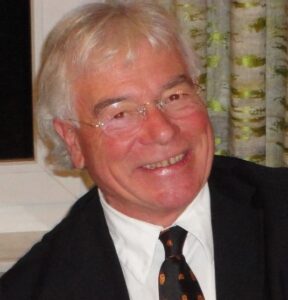
Prof. Dr. med. Dr. rer. nat. Bertram Flehmig
23.07.1947
† 27.05.2024
Society of Virology mourns the loss of its founding member Bertram Flehmig. He was a virologist at the University of Tübingen for many years and continued his scientific work after his retirement as Research Director of Mediagnost GmbH in Reutlingen.
As a doctoral student, he was already able to demonstrate the coupling of virulence factors and their transfer to daughter viruses in reassortment experiments with influenza viruses. His studies on the hepatitis A virus, which he was one of the first to reproduce in cell culture, were groundbreaking. This laid the foundations for his development of the world's first hepatitis A vaccine, the effectiveness of which he was able to demonstrate in a clinical trial. Dead vaccines based on the HAV antigen were approved in Europe and the USA in the 1990s.
Bertram Flehmig's investigations into the cultivation of hepatitis A virus in cell culture were the basis for his studies on cellular immunity and for his cooperation in this field with his wife Angelika Vallbracht. He was a pioneer in the development of immunodiagnostics and prophylaxis of hepatitis A infections and his fundamental work has made a significant contribution to the international reputation of German virology.
On July 9, 1990, Bertram Flehmig was one of the 67 colleagues from Germany, Austria and Switzerland who gathered in Nuremberg to found Society of Virology e.V..
He was a man of many interests who took on responsibility as a councillor in his home town of Tübingen, but was also active for many years as first violinist in the Capella Tübingen chamber music group. In convivial company, he was able to freely quote many wisdoms from his favorite poet Wilhelm Busch...
We miss this friend and scientist and will never forget Bertram.
Detlev H. Krüger, Berlin
Thomas Mertens, Ulm
Heinz Zeichhardt, Berlin
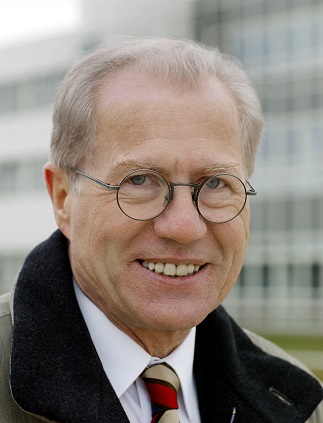
Prof. Dr. rer. nat. Dr. med. habil. Hans Joachim Wolf
09.03.1945 in Kronach
† 03.05.2024 in Starnberg
Society of Virology mourns the loss of its founding member Professor Dr. rer. nat. dr. med. habil. Hans Joachim Wolf. Hans Wolf studied biology and chemistry at the Justus-Maximilians-Universität Würzburg, where he began his doctorate in 1971 in the laboratory of Harald zur Hausen on the "Detection of viruses in certain types of human cancer and the possible etiological relationship to the development of these cancers". After receiving his doctorate (Dr. rer. nat.) at the Friedrich-Alexander-University Erlangen, Hans Wolf spent two years as a visiting scientist with Bernard Roizman at the University of Chicago. In 1977, Hans Wolf returned to Germany to the Max von Pettenkofer Institute of the Ludwig-Maximilians-University in Munich, where he habilitated at the Medical Faculty and shortly afterwards was appointed C2 Professor of Molecular and Tumor Virology.
In 1991, Hans Wolf was appointed Founding Director of the Chair of Medical Microbiology and Hygiene at the University of Regensburg. Hans Wolf held this position until his retirement in 2010 and served as Dean of the Faculty of Medicine from 2001 to 2003. Hans Wolf deserves particular credit for establishing the Institute and integrating the fields of virology, microbiology and hygiene into patient care, research and teaching. In 1992, the Institute was appointed WHO Collaborating Center for Research and Control of Virus-associated Cancers and in 1995 WHO Collaborating Centre for Viral Hepatitis.
Hans Wolf's name is closely associated with his work on the Epstein-Barr virus-associated development of nasopharyngeal carcinoma (NPC). Starting with studies on the pathogenesis of NPC in high-endemic areas in China, Hans Wolf always pursued practical aspects, such as the development of modern diagnostics and preventive vaccines, with great perseverance, right through to advanced clinical studies. Beginning in the mid-1980s, Hans Wolf adapted this role model of applied basic research to the human immunodeficiency virus, focusing among other things on the development and testing of HIV vaccine candidates. Hans Wolf was a founding member of the EUROVACC Foundation, which was set up in 2002 to coordinate internationally funded programs for the development of vaccines and is still in existence today.
Hans Wolf motivated young scientists and created a framework that enabled them to develop their own scientific profile. By striving for the translation of research results, Hans Wolf inspired his young employees to found biotech companies, such as Mikrogen GmbH, Lophius GmbH and Geneart AG, which have created numerous jobs and paved the way for professional careers.
Hans Wolf has initiated numerous national and international research alliances (DFG, BMBF, EU) and supported them in various functions. He has served on various scientific advisory boards, including the Heinrich Pette Institute, the EC Research Integrated Project TB-VAC and the GEDE AIDS and Infectious Diseases Research Institute (Nigeria) as Chairman and the Scientific Advisory Board of the Institute of Tropical Medicine in Heidelberg as Deputy Chairman.
As early as 1983, Hans Wolf was awarded the Curt Bohnewand Prize for his achievements in cancer research. For his many years of scientific collaboration in the joint fight against cancer and AIDS, Hans Wolf received honorary professorships from the Institute of Virology of the Chinese National Academy for Preventive Medicine, Beijing, the Institute of Medical Biology of the Chinese Academy of Medical Sciences, Kunming, and the National Center for AIDS/STD Disease Control and Prevention, Beijing. In 2004, Hans Wolf was presented with the Friendship Award, the highest Chinese award for foreign scientists, by the Chinese Prime Minister Wen Jiabao in Beijing.
We fondly and gratefully remember Hans Wolf as an inspiring scientist, motivator and caring institute director.
Prof. Dr. Wolfgang Jilg, Prof. Dr. Hans Helmut Niller and Prof. Dr. Ralf Wagner
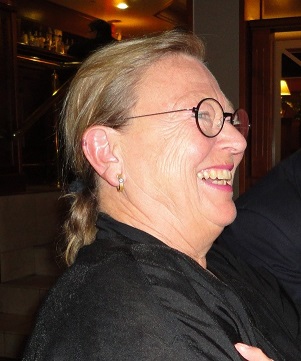
Professor Dr. rer. nat. Angelika Vallbracht
05.05.1949
† 11.12.2023
Society of Virology mourns the loss of Prof. Dr. Angelika Vallbracht, who passed away unexpectedly on December 11, 2023 at the age of 75.
The first phase of her scientific career took place in Tübingen, where from 1975 she carried out highly regarded work on influenza virus and on the diagnosis and treatment of cytomegalovirus in immunocompromised patients, but then concentrated on research into the hepatitis A virus together with her husband Bertram Flehmig. HAV was a common and important pathogen in the Third World, but also in Europe, which could only be successfully combated after the development of specific diagnostics and a highly effective vaccine - not least in Tübingen. In 1990, she was appointed to the newly founded Chair of Virology in the Department of Biology/Chemistry at the University of Bremen, one of the few virology chairs in Germany at a faculty of natural sciences. Here she continued her work on the role of the innate and acquired immune response to HAV infection.
Angelika Vallbracht has represented the field of virology in key committees with great commitment and has worked to promote the development and reputation of our discipline. She was a long-standing member of the Central Commission for Biological Safety at the Robert Koch Institute and deputy chair of the Scientific Advisory Board of the RKI. As a founding member of the GfV, she headed the Commission for Genetic Engineering in our specialist society and was an active member and critical advisor to the Executive Board and Advisory Board for many years. Her commitment to organizing several annual meetings of the GfV and the German Association for the Control of Viral Diseases in Bremen is also unforgettable.
Angelika was a colleague and friend whose enthusiasm, enthusiasm and humor were always contagious to those around her. She was a strong-minded, incorruptible personality with a big heart who knew how to articulate herself clearly. We will miss her very much.
Detlev H. Krüger, Berlin
Thomas Mertens, Ulm
Heinz Zeichhardt, Berlin

Prof. DR. vet. med. dr. h.c. gerd sutter
31.05.1962
† 31.10.2023
Society of Virology mourns the loss of Prof. Dr. vet. med. dr. h.c. Gerd Sutter, who passed away after a serious illness on October 31, 2023 at the age of 61.
Gerd Sutter was born in Kaiserslautern in 1962. He studied veterinary medicine at the Ludwig-Maximilians-Universität München (LMU) and began his research on the modified vaccinia virus Ankara (MVA) as part of his doctoral thesis at the Institute for Medical Microbiology and Infectious Disease Medicine at the Faculty of Veterinary Medicine in Munich in 1988. From 1990-1993 he worked as a postdoc in the group of Bernard Moss at the National Institutes of Health (NIH) in Bethesda, USA. After returning to Germany, he continued his research with his own group at the Institute of Molecular Virology at Helmholtz Zentrum München. In 1999, he habilitated in virology at the Institute of Microbiology at the LMU Munich. From 2003, he headed the Department of Virology at the Paul Ehrlich Institute in Langen, where, in addition to his scientific work, he was also involved in regulatory tasks for vaccine development and approval. In 2009, he was appointed university professor and head of the Institute of Virology at the Faculty of Veterinary Medicine at LMU Munich. He was also Director of the Department of Veterinary Science until 2022.
Already during his doctoral thesis, Gerd Sutter developed a special interest in smallpox viruses, especially MVA, and the possibility of using MVA as a viral vector for vaccine development. At the NIH, he established the methodology for the insertion of foreign genes into the genome of MVA. This paved the way for the production of recombinant MVA vaccines against a variety of infectious agents. This milestone in MVA research was highly publicized in 1992. Shortly afterwards, he succeeded in developing the first recombinant MVA vaccine against influenza viruses. A further research interest of Gerd Sutter concerned the understanding of the development of an immune response after MVA vaccination in order to achieve an improved protective effect. He carried out fundamental work on this at the Paul-Ehrlich Institute in Langen and later at the Faculty of Veterinary Medicine in Munich. As a veterinarian and virologist, Gerd Sutter felt deeply committed to the One Health concept. Influenza, paramyxo- and coronaviruses are just a few of the many zoonotic pathogens that were researched at his institute. In addition, Gerd Sutter has developed vaccines against HIV, measles, avian influenza, West Nile fever, MERS and COVID-19 and characterized them in various animal models. Based on this preclinical data and thanks to his excellent networking with colleagues worldwide - not least due to his integrative, sociable nature and friendly personality - Gerd Sutter achieved the decisive breakthrough in establishing MVA as a platform on the basis of which a large number of recombinant MVA vaccines could be tested in clinical trials in humans. In doing so, he fulfilled a long-cherished wish and laid the foundation for MVA-based vaccine applications in veterinary and human medicine.
In further pioneering work, Gerd Sutter and his colleagues investigated the immune evasion of other orthopox viruses, such as the classical vaccinia virus or the ectromelia virus, the causative agent of mousepox. Here he showed that viral immune evasion proteins are important virulence factors, as they counteract the activation of the immune system early after infection. A large number of virus mutants were produced by his team for this purpose and characterized in vitro and in vivo in various animal models. These results provided a better understanding of the pathogenesis of the diseases caused by orthopox viruses and serve as a basis for the development of new therapy and prevention strategies. Gerd Sutter has always been particularly interested in the Funding of young scientists. He was highly committed to student teaching and veterinary training and supervised numerous doctoral theses. He established a broad-based research program at his institute in the field of molecular virology, which focused primarily on viruses with zoonotic potential and relevance for veterinary and human medicine. In this way, he gave many young researchers the opportunity to start a scientific career. Many of his former doctoral students are now working in leading positions themselves.
In his role as project leader at the German Center for Infection Research in the TTU Emerging Infections, he particularly supported the combination of basic research and translational research. In addition, Gerd Sutter was a long-standing member of the Commission on Safety in Variola Virus Research at the WHO. In 2023, he also became head of the Commission on Poxviruses in the WHO initiative to prioritize pathogens with epidemic and pandemic potential. At Society of Virology , he was active for many years as a member and chair of the Commission on Zoonoses and a founding member and chair of the Commission on Virological Research with Dual-Use Potential. In 2021, Gerd Sutter received an honorary doctorate from the University of Veterinary Medicine Hannover for his outstanding research work in the field of emerging zoonotic pathogens and infectious diseases and for his commitment to the One Health concept.
Gerd Sutter was a very sociable person, a family man who, in addition to his great passion, virology, spent every free minute fishing in various waters all over the world. The Isar in Munich was his home river and also his favorite fishing water. His detailed and amusing descriptions, such as how he tried to refine his casting technique and convince trout that there was fat prey waiting for them on the surface of the water, remain vividly in his memory. To make a difference in this hobby, Gerd Sutter was actively involved in nature and water conservation. For many years, he was a member of the executive committee of the Bavarian State Fishing Association (LFV) and chairman of a committee for fishing and water protection.
Gerd Sutter was always in a good mood and impressed us, and I'm sure many others, with his positive charisma, enthusiasm, generosity and strategic foresight. At the same time, he was a modest person who always had an open ear for the problems of others and provided support whenever he had the opportunity to do so. We mourn his loss and will never forget him. Our thoughts are with his wife, children and relatives.
Asisa Volz & Ingo Drexler
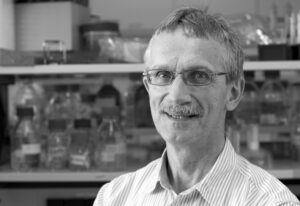
Prof. DR. MED. ortwin adams
19.06.1958
† 10.07.2023
Society of Virology mourns the loss of Prof. Dr. med. Ortwin Adams, who passed away on July 10, 2023 at the age of 65 after a long illness.
Ortwin Adams was born in Oberhausen in 1958 and studied medicine at the University of Bonn. After his studies and subsequent doctorate, he joined the then Institute for Medical Microbiology and Virology at the University of Düsseldorf as an assistant doctor in 1985. In the following years, he was in charge of virological diagnostics at the institute and began his clinical-virological scientific work in the working group of Prof. Andreas Scheid. In 1996, he was recognized as a specialist in microbiology and virology and later in 2002 he habilitated in medical microbiology and virology. Following the establishment of an independent Institute of Virology by the Medical Faculty of the University of Düsseldorf in 2002, Ortwin Adams worked there as a senior physician and head of diagnostics from 2004 until the end.
Ortwin Adams has shown outstanding commitment to the interests of virology. At Düsseldorf University Hospital, he represented virology in the clinic for many years and, as a member of the faculty council, played a key role in the establishment of an independent institute at the University of Düsseldorf. His scientific focus was on clinical virology. He was always interested in finding solutions to new diagnostic problems and applying them in patient care. His work on molecular multiplex diagnostics of respiratory viruses and the optimization of methods for the detection of JC virus infections in the CNS are particularly noteworthy. His expertise in the diagnosis of JC virus as the causative agent of progressive multifocal leukoencephalopathy (PML) was internationally recognized and was in demand nationwide. The sequence characteristics of JC virus isolates in PML and the viral properties that are important for the development of the disease were the subject of his research activities until the end. The training of young virologists was a particular concern of his. He contributed with great commitment and pleasure to student teaching and continuing medical education and supervised numerous doctoral theses.
With his outstanding clinical-virological expertise, his motivation and his friendly and open personality, Ortwin Adams was an asset to Society of Virology. He was active in various commissions committees such as the "Antiviral Therapy" committee and the Joint Diagnostics Commission of the DVV and GfV for many years and was involved in numerous guidelines as a representative of the GfV.
As a person, Ortwin Adams was friendly, helpful and always open to new ideas in every situation. His unique sense of humor, which he retained to the end, should also be highlighted.
We will miss him and honor his memory. Our sympathy goes out to his wife, children and relatives.
Jörg Timm
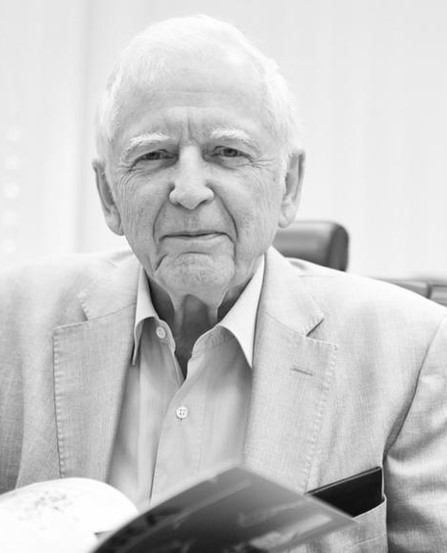
Prof. DR. MED. DR. H. C. MULT. HARALD ZUR HAUSEN
11.03.1936 in Gelsenkirchen
† 28.05.2023 in Heidelberg
Society of Virology mourns the loss of its founding and honorary member, Nobel Prize winner Professor Dr. med. Harald zur Hausen. He was a pioneer in the field of cancer-causing viruses, discovered the link between infections with human papillomaviruses and cervical cancer and thus laid the foundation for vaccination against these pathogens. He was awarded the Nobel Prize for Medicine or Physiology in 2008 for his groundbreaking work.
Harald zur Hausen studied medicine in Bonn, Hamburg and finally in Düsseldorf, where he received his doctorate in 1960. After working as a medical assistant in Wimbern, Isny and his birthplace of Gelsenkirchen, he obtained his license to practice medicine in 1962 and then worked as a research assistant at the Institute for Hygiene and Microbiology at the University of Düsseldorf until 1966.
Already fascinated at this time by the possibility of an infectious cause of certain cancers, Harald zur Hausen began a research stay in 1966 in the Division of Virology at the Children's Hospital of Philadelphia, in the laboratory of Gertrude and Werner Henle. At that time, the research couple had discovered a connection between the Epstein-Barr virus (EBV) and Burkitt's lymphoma, which is why Harald zur Hausen also worked on this topic during his stay in the Henle laboratory. His particular focus in these and subsequent years was on the molecular biological detection of viral nucleic acids in tumor cells, even if they did not produce viruses or viral proteins. He was particularly interested in the question of how viruses can influence human chromosomes and genes, a topic that would not let him go. In 1968, Harald zur Hausen was appointed Assistant Professor of Virology at the University of Pennsylvania. He held this position until his return to Germany in 1969, where he joined Eberhard Wecker's Institute of Virology at the Julius Maximilian University of Würzburg. There he habilitated in virology with a series of original papers, which primarily dealt with the possible connection between herpes viruses and adenoviruses and certain human tumors. He was unable to detect any herpesviral DNA in cervical tumors, although the prevailing opinion at the time was that these viruses were associated with the development of this type of tumor.
In 1972, Harald zur Hausen was appointed professor at the newly founded Institute of Clinical Virology at the University of Erlangen-Nuremberg. As part of his work on genital warts and cervical tumors, he travelled to Kenya in 1976 to collect biopsies. He had the biopsies analyzed individually and found evidence that there are different papilloma viruses. Certain of these viruses, he suggested, could be linked to cervical cancer, a hypothesis that was widely rejected and in some cases discredited at the time. In 1977, Harald zur Hausen was appointed to the Chair of Virology and Hygiene at the Centre for Hygiene at the University of Freiburg, where he and his research group confirmed the causal link between certain papillomaviruses and genital tumours over the following years; during this time, types 16 and 18, which are responsible for >70% of cervical cancer cases, were identified and characterized. This laid the foundation for the development of corresponding vaccines.
From 1983 to 2003, Harald zur Hausen was Chairman and Scientific Member of the Board of Trustees of the German Cancer Research Center in Heidelberg. He found himself in a difficult situation there after a review had warned of an inadequate scientific position, particularly in international competition. He personally visited and assessed the groups at the DKFZ and thus gained a picture of the situation; as a result, on the basis of scientific evaluations, there was a clear structural and content-related change and reorientation, which brought the DKFZ into the top league of corresponding research institutes. This also affected Funding the early independence of young scientists, many of whom subsequently took up leading positions in other research institutions. His conviction that basic research was an important prerequisite for medical progress shaped the future direction of the DKFZ to a great extent. He combined this conviction with the central concern of transferring the results of basic research into clinical application. In collaboration with Heidelberg University Hospital, this led to the establishment of clinical cooperation units and ultimately to the founding of the National Center for Tumor Diseases in Heidelberg. Harald zur Hausen maintained his interest in experimental work and visited his laboratory almost daily to discuss the very latest results. Over the course of time, the research focus "Applied Tumor Virology" (now called "Infection, Inflammation & Cancer") was consistently built up under the direction of Harald zur Hausen in order to be able to investigate the topic of human papillomaviruses and cancer in all its facets. It is no exaggeration to say that Harald zur Hausen, in his 20 years as Chairman of the DKFZ Foundation Board, has made this institution an international leader in the field of cancer research.
After his retirement in 2003, Harald zur Hausen was awarded the Nobel Prize for Medicine in 2008 "for his discovery of human papilloma viruses causing cervical cancer", according to the official citation of the Nobel Committee in Stockholm. He has also received a large number of other highly prestigious prizes and awards, including the Robert Koch Prize (1975), the German Cancer Prize (1986), the Paul Ehrlich and Ludwig Darmstaedter Prize (1994), the Ernst Jung Prize and the Jacob Henle Medal (1996), the Prince Mahidol Prize (2005), the LoefflerFrosch Medal of Society of Virology (2007), the Johann Georg Zimmermann Medal (2007) and the Gairdner Foundation International Award (2008). He also received the Grand Cross of the Order of Merit of the Federal Republic of Germany with Star for his numerous achievements, which was presented to him by the then Federal President Horst Köhler in 2009. Furthermore, Harald zur Hausen has received more than 30 honorary doctorates and honorary professorships.
Harald zur Hausen is rightly regarded as a pioneer in the field of cancer-causing viruses. His work has had a significant impact on this topic and he has defended and ultimately proven his thesis on the link between human papillomaviruses and cervical cancer with great energy and against much opposition. This persistence is often described as "Westphalian stubbornness" and was certainly a decisive factor in the success of his work. His assumption has now been proven by numerous other research groups. Nobody doubts it anymore and his findings have found their way into textbooks. Harald zur Hausen's work laid the foundation for the development of a vaccine to prevent infection with the relevant oncogenic papillomaviruses. Thanks to his perseverance, two such vaccines were approved for clinical use in 2006; their effectiveness in preventing cervical cancer has now been clearly proven. This can undoubtedly be regarded as a milestone in cancer prevention. Harald zur Hausen has not only carried out ground-breaking basic research, but has also consistently translated this into clinical application.
As a person, Harald zur Hausen was greatly appreciated for his friendly, reserved and objective manner. He always had good advice for budding scientists. We still remember one of them in particular: "You should always assume that most of the hypotheses you put forward are wrong and must either be corrected or rejected." This requires a certain tolerance for frustration, but that is part of being a scientist. But it is also a learning process, because the assumption that scientific statements are irrefutable, even in scientific publications, is not correct. Science is highly dynamic, a realization that many of us and the general public have had to learn, especially during the pandemic. Unfortunately, Harald zur Hausen will no longer be at our side with his important advice. We will sorely miss him and keep him in lasting memory.
Ralf Bartenschlager Hans-Georg Kräusslich
In recognition of his life and scientific achievements, we would like to draw your attention to the interview with Prof. Harald zur Hausen, which was published in the April 2022 newsletter of jGfV .
Prof. Dr. Volker Erfle
26.02.1941
† 13.05.2023
In 1971, Volker Erfle, who holds a doctorate in veterinary medicine, began his scientific career as head of a microbiology laboratory at the Gesellschaft für Strahlenforschung (GSF; now Helmholtz Munich). In 1981, he completed his specialist veterinary training and habilitation in microbiobiology. He was fascinated by viruses, especially retroviruses, as triggers of life-threatening diseases in humans and animals. His early work on the role of retroviruses in radiation-induced tumors already dealt with the role of so-called endogenous retroviruses, i.e. retroviruses that have become established in the genome, in tumor diseases in mice and humans. He was way ahead of his time.
In 1983, he took up the first reports on the isolation of what is today probably the best-known retrovirus, HIV-1, from people with the acquired immune deficiency AIDS and focused his work on this virus for more than 30 years. He wrote numerous publications on HIV and was one of the first virologists to recognize that the virus can persist not only in T cells but also outside the immune system in viral reservoirs.
Volker Erfle was characterized by his ability to think outside the box - according to the motto "think big". In virology, he was known beyond Germany's borders for his innovative ideas, his enthusiasm and his zest for life. For Volker Erfle, basic science and clinical research went hand in hand. To put this into practice, he founded the Institute of Molecular Virology at the former GSF (now Helmholtz Munich) in 1991 and became Director of the Chair of Virology at the TUM Faculty of Medicine in 1997. Both institutions are still very active centers of virological research today - a visible sign of Volker Erfle's scientific vision.
Volker Erfle remained approachable and was always open to discussions and innovative ideas both inside and outside of research. For example, he was an early advocate of supporting young female scientists in reconciling family and career, e.g. by advocating the creation of child-friendly working conditions for employees with babies >30 years ago. This room, affectionately called the "nursing room" at the time, was the basis for today's daycare center at Helmholtz Munich.
Volker Erfle died on May 13, 2023 after a long illness. We will remember him as a visionary and bon vivant with a great love for science.
Ruth Brack-Werner and Ulrike Protzer
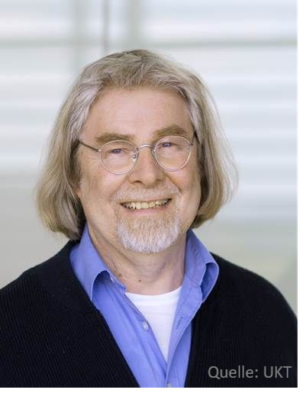
Prof. Dr. med. Dr. rer. nat. Klaus Hamprecht
22.06.1954
† 19.06.2022
In June 2022, Professor Dr. med Dr. rer. nat. Klaus Hamprecht passed away at the age of 67. For more than 30 years until the end of his life, he worked at the Institute of Medical Virology and Epidemiology of Viral Diseases at the University Hospital of Tübingen and, as a senior physician, headed the consultation laboratory for congenital and postnatal cytomegalovirus infections. As a member of Society of Virology , he was particularly committed to clinical virology. He helped shape this until the end with countless active contributions and was a widely known and valued colleague.
Klaus Hamprecht studied biochemistry and medicine in Munich and Tübingen. In 1986, he completed his scientific doctorate at the Friedrich Miescher Laboratory of the Max Planck Institute in Tübingen and his medical dissertation in 1988. This was followed by training positions at Ulm University Hospital, Robert Bosch Hospital in Stuttgart and, from 1991, as a research assistant at the Institute of Medical Virology at the University of Tübingen. Here he developed CMV diagnostics using molecular biological technologies and carefully established cell culture methods. He qualified as a specialist in 1995, completed his habilitation in clinical virology in 2004 and was appointed adjunct professor in 2007.
His scientific and clinical work focused on the diagnosis of CMV infections during pregnancy, connatal and postnatal CMV transmission, as well as their prevention and treatment. He developed genotypic and phenotypic test methods for the clarification of antiviral resistance and a patented virus inactivation method for the prevention of virus transmission through breast milk.
He maintained close and extremely fruitful cooperation with many clinical partners, e.g. in prenatal medicine and neonatology. His scientific articles, book contributions and research findings are recognized both nationally and internationally.
As a member of the DVV and GfV commission on "Viral infections in pregnancy", among other things, he contributed his broad expertise and extremely detailed knowledge of the literature to the creation of various guidelines and made a significant contribution to improved patient care and the broad visibility of clinical virology. He has always enriched the laboratory directors' meetings and the working group for clinical-virological research of the GfV with his participation.
Klaus Hamprecht was an outstanding lecturer and enthusiastic mentor for several generations of students, doctoral candidates from various disciplines and colleagues in further training. The individual care and counseling of patients in the context of his work for the consulting laboratory was always a very important concern for him as a doctor. Thanks to his in-depth specialist knowledge, he was a highly valued contact person, even far beyond the borders of the University Hospital of Tübingen.
His genuine interest in others, his joie de vivre and humor shaped his entire personal appearance.
We deeply regret to have lost Klaus Hamprecht, a highly esteemed colleague, great clinical virologist and always helpful friend.
Our condolences go out to his family and loved ones.
Tina Ganzenmüller, Stefan Jürgens and Thomas Iftner for the staff of the Institute of Medical Virology, University Hospital Tübingen and the Society of Virology
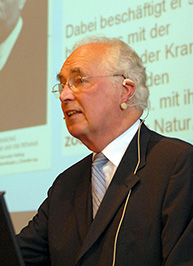
Prof. Dr. med. Hans-Dieter Klenk
June 25, 1938 in Cologne
† June 1, 2021 in Giessen
The Society of Virology mourns the death of its founding member and former President Professor Hans-Dieter Klenk Hans-Dieter Klenk studied medicine and biochemistry in Tübingen, Vienna and Cologne. From 1967 to 1970 he was a visiting scientist in Purnell Choppin's laboratory at the Rockefeller University in New York. Back in Germany, he was appointed C3 professor at the Justus Liebig University in Giessen in 1973 and in 1985 he accepted a call to the chair of virology at the Philipps University in Marburg and became director of the Institute of Virology. He held this position until his retirement in 2007.
Hans-Dieter Klenk has decisively shaped Marburg virology and virology in Germany and established its international orientation and visibility. Under his leadership, numerous young scientists had the opportunity to develop their own scientific profile and to be appointed to leading positions nationally and internationally.
Hans-Dieter Klenk's name is closely associated with his very successful research on influenza viruses, especially the role of surface proteins, haemagglutinin and neuraminidase in the pathogenesis of influenza. Furthermore, other zoonotic viruses that threaten public health as emerging viruses were of great interest to him. Here he was able to establish a new research direction in Marburg virology, which is still very actively pursued today.
He led numerous coordinated programmes of the German Research Foundation, including the SFB 286, and was active as a board member for many scientific advisory boards of research institutions (Georg-Speyer-Haus, Frankfurt am Main, Feldberg Foundation for Anglo-German Scientific Exchange, Institute of Medical Microbiology, Fudan University). He was a founding member of Society of Virology and led the society as president from 1999 to 2005. In 2015, he received the Loeffler-Frosch Medal of Society of Virology for his special services to virology in German-speaking countries. He has served as Vice-President of the von Behring-Röntgen-Stiftung, Gießen-Marburg, since its foundation.
Hans-Dieter Klenk has received numerous highly respected scientific prizes, such as the Robert Koch Medal, the Ernst Jung Medal for Medicine and the Emil von Behring Prize. He was also awarded the Federal Cross of Merit 1st Class in 2018.
Hans-Dieter Klenk's personality was characterised by his natural authority coupled with astuteness and precision. With him, virology in Germany loses one of its great personalities who shaped the scientific landscape for decades and who was a valued advisor to the end.
We miss the excellent scientist and the straightforward, consistent and generous person and will keep him in lasting memory.
Stephan Becker
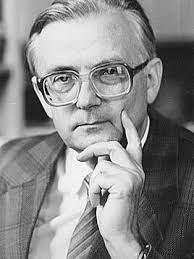
Prof. Dr. med. habil. leopold Döhner
November 25, 1932
† May 20, 2021
Leopold Döhner, founding member and first Vice-President of Society of Virology, passed away in his eighty-ninth year. His research focused on respiratory viral infections, especially those caused by influenza and adenoviruses. As early as 1975, coming from the Medical Academy in Magdeburg, he was appointed Professor of Medical Microbiology at the University of Greifswald. There he headed the institute of the same name - whose foundation goes back to Friedrich Loeffler - until 1992.
In 1993, he founded the Private Institute for Microbiological Research - MICROMUN GmbH in Greifswald, with which he remained associated in an advisory and friendly capacity until his death. Leopold Döhner was an extremely pleasant colleague who combined scientific determination with great personal modesty. Despite his many obligations as a university lecturer, as chairman of the Society for Microbiology and Epidemiology of the GDR and in many other tasks, he did not allow himself to be deprived of his personal experimental work - in other words, to preserve his roots in the laboratory. In this way, he was able to awaken enthusiasm for virological research in generations of students.
The Society of Virology will honour his memory.
Detlev H. Krüger, Berlin
Photo: Berlin-Brandenburg Academy of Sciences and Humanities
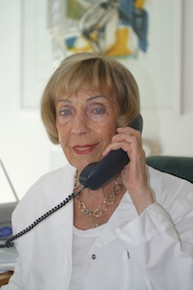
Prof. Dr. med. Gisela Enders
May 25, 1924 in Stuttgart
May 1, 2021 in Stuttgart
A life for medical virology (1924 - 2021). On 1 May 2021, Prof. Dr. med. Gisela Enders, a pioneer of medical virology, passed away in her home town of Stuttgart. We are filled with grief and respect and look back on her life's work, which at the same time provides an insight into the development of virology in Germany as an independent subject in science, university teaching and medicine.
Mrs Enders was born Gisela Ruckle on 25 May 1924 in Stuttgart and grew up as a true Swabian: she was hard-working, inventive, shrewd, persistent, caring and assertive. Studying medicine was her great desire. Independently, she transferred to a grammar school at the age of 15 and, after graduating from high school, studied medicine in Munich and Tübingen from 1943 to 1949 (doctorate in 1953). Under wartime conditions she did nursing service in a military hospital. After various intermediate stations as a guest assistant at the University Children's Hospital in Cambridge and as a scientific assistant in Heidelberg at the Institute for Virus Research, she took the opportunity to become acquainted with the latest developments in medicine and infectiology in the USA from 1953 - 1956. At that time, combating epidemics was a fateful, worldwide challenge, especially with regard to the aetiologically still largely unexplored viral diseases. There were still no functioning vaccinations against influenza, poliomyelitis, measles and others. The seemingly harmless children's disease rubella was not recognised as a cause of embryopathies and fetopathies until 1941. Laboratory analyses and pathogen isolation were lacking. In America, the young German doctor succeeded, among other things with a Fulbright Fellowship, in becoming an employee in the laboratories of American virology pioneers, first with Dr. J. Salk (Pittsburgh), who developed the first polio vaccine, and then with Dr. J.F. Enders (Harvard, Boston), who, together with other researchers, established cell culture technology to isolate pathogenic viruses and grow them in any quantity. This was the decisive breakthrough for the production of vaccines, the production of antigens for routine serodiagnosis and immunity determination, the analysis of virus replication and the development of a specific therapy.
Already in Salk's laboratory, Gisela Enders isolated the measles monkey virus from monkey kidney cells. In the group of J.F. Enders, she then discovered the close relationship between the measles monkey virus and the human measles virus. There was no relationship to the Nobel Prize winner J.F. Enders. But: "Nomen est omen", because Mrs. Ruckle received the name Enders in 1957 by marrying Dr. Gerhard Enders in Germany.
For Ms Enders, the path as a woman and German in the USA was doubly difficult. With great commitment and tireless diligence, she contributed a great deal to the development work in the burgeoning field of virology and additionally helped to break down prejudices with her winning manner.
In 1956, Ms Enders returned to Europe. Initially, she was involved in setting up the production of vaccines against rubella and measles at the Institut Mérieux in Lyon. Together with other US returnees, she contributed to the technology transfer that enabled the rise of virology in Germany to a top level. As a research associate at the Hygiene Institute of the University of Marburg, she built up a powerful virus diagnostics unit. She quickly gained a high reputation among the medical profession in and outside the university hospital as a competent contact person and advisor. Her lively disposition, her clear statements and her willingness to take responsibility in the event of clinical problems or in the fight against epidemics, as well as her extensive knowledge, quickly won her great and lifelong recognition and made her a sought-after author of medical book and journal articles at an early stage.
In 1963, Mrs Enders moved with her husband, the orthopaedic surgeon Dr Gerhard Enders, to Stuttgart, the city that became the centre of life for Gisela and Gerhard Enders and their two sons Christoph and Martin. There she joined the Stuttgart State Medical Examination Office, set up a modern department for virus diagnostics and rose to the position of Government Medical Director. In 1973, she habilitated and received an honorary professorship first in Marburg in 1976 and then in Stuttgart in 1984.
Scientifically, she increasingly turned to the problem of infections with rubella and other viruses that endanger pregnancy and the foetus. She felt increasingly restricted in her research work in the civil service. In 1979, as a medical specialist for medical microbiology and infectious disease epidemiology, she founded her own laboratory practice with a focus on virology at great entrepreneurial risk. The company was a resounding success. It grew quickly and is now a large institute covering all branches of laboratory medicine with the most modern methods and is run by a community of several laboratory physicians as a medical care centre. With untiring energy, Mrs Enders has always led her institute innovatively and adapted it to all new diagnostic developments. Outstanding was the unusually close and trusting contact with the medical profession. This enabled her to conduct unusually large and consistent scientific studies in her main field of work, perinatal medicine. She has published her findings in many international journals of virology and German journals of continuing medical education and book contributions. Her book "Infections and Vaccinations in Pregnancy" (1991) became the infectiological "bible" of gynaecology and perinatal medicine. In addition, she wrote numerous original papers on the entire spectrum of endemic and emerging viral diseases and continued to be involved in clinical virology in national and international professional societies. Here, among others, the Deutsche Vereinigung zur Bekämpfung der Viruskrankheiten e. V. (German Association for the Control of Viral Diseases) should be mentioned. (DVV), which was founded soon after Ms Enders' return from the USA by the German federal states to provide scientific advice (initially on the problem of poliomyelitis). For the first time, the DVV provided clinical virology, paediatrics and the public health service with a forum in which virological experts in Germany could consult and exchange practical experience. Rarely have so many chair holders and heads of department pipetted together, often with the assistance of Gisela Enders. She was able to draw from a bubbling source for this, the "European Group for Rapid Viral Diagnosis", which she co-founded and of which she became an honorary member. By merging with the "European Association against Poliomyelitis and Other Viral Diseases", this later became the "European Society for Clinical Virology" (ESCV). Mrs Enders continued to run her highly recognised laboratory institute into old age, in which her son Priv.-Doz. Dr. Martin Enders took her place a few years ago and continues her life's work.
Gisela Enders prevailed against all odds and was always recognised and admired as a scientist, clinician and entrepreneur. Her work has been honoured many times with national and international prizes, orders and honorary memberships, including the Federal Cross of Merit on Ribbon for achievements in the field of viral research, the Haackert Gold Medal for services in the field of prenatal diagnostics, the Albert Schweitzer Medal and the Maternité Award of the German Society for Perinatal Medicine. In 2011, she was honoured with the Loeffler Frosch Medal of the Society of Virology for her life's work.
With Gisela Enders we lose the grande dame of clinical virology. As a pioneer, she decisively shaped this field by combining patient-oriented diagnostics and scientific activity. With her selfless and benevolent manner, she always supported and promoted her institute team as well as her colleagues near and far and was thus not only highly respected as a scientist, but also extremely appreciated and popular as an advisor and friend across generations.
We will miss her and keep her in our lasting memory.
Hans W. Doerr
Heinz Zeichhardt
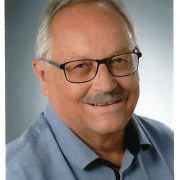
Professor Dr. med. Bernhard Fleckenstein
August 10, 1944 in Würzburg
May 04, 2021 in Schlaifhausen, Wiesenthau
The Society of Virology mourns the death of its founding president, Professor Bernhard Fleckenstein. From 1978 until his retirement in 2015, Bernhard Fleckenstein held the Chair of Virology at the Friedrich-Alexander University of Erlangen-Nuremberg and was Director of the Virological Institute at the University Hospital Erlangen. After studying medicine in Freiburg/Br and Vienna from 1963 to 1969, a period as a medical assistant in Lübeck and a doctorate in virology, he began his virological research work in 1970 at the Institute for Hygiene and Microbiology at Göttingen University (Director: Prof. Reiner Thomssen).
In 1972, he joined Prof. Harald zur Hausen's group at the Institute of Clinical Virology at the Friedrich-Alexander University of Erlangen-Nuremberg, where he habilitated in 1975. In 1976, he was appointed Associate Professor of Microbiology and Molecular Genetics at Harvard Medical School in Boston and became head of the Department of Microbiology at the Primate Center of Harvard University. In 1978, he was appointed Full Professor and Head of the Institute of Clinical and Molecular Virology at the University of Erlangen, where he taught until 2015 following rejected appointments to the chairs of virology at the University of Freiburg (1987) and the Ludwig Maximilian University of Munich (1987). He also turned down a call to the position of Scientific Member and Chairman of the Foundation Board of the German Cancer Research Centre in 2003. His work in Erlangen was also characterised by the continuous structural development of the virological diagnostics and research laboratories into a nationally and internationally renowned centre for clinical and molecular virology.
Already in his first year of virological work in Göttingen, Bernhard Fleckenstein turned to the newly discovered group of rhadinoviruses, a subgroup of herpes viruses with oncogenic properties. He continued this work after moving to Harvard Medical School in Boston. He investigated the molecular mechanisms of the lymphomas and lymphatic leukaemias caused by these viruses and was able to publish in Nature as early as 1978 that isolated viral DNA has a tumourigenic effect in animal experiments. He and his working group in Erlangen achieved another important breakthrough in this field when they published in 1992 that individual representatives of this virus group can immortalise human T cells in cultures, i.e. stimulate them to grow continuously. This methodologically paved the way for a better analysis of central signalling pathways in lymphocytes and led to a large number of collaborative projects in which fundamental mechanisms of T cell activation were elucidated. In further pioneering work, Bernhard Fleckenstein and his colleagues dealt with the human cytomegalovirus, an important pathogen of prenatal infections and of infections in immunosuppressed individuals. They cloned the entire genome of the virus for the first time and carried out the molecular mapping of the most important structural and regulatory proteins. In collaboration with Prof. Walter Schaffner, University of Zurich, Bernhard Fleckenstein discovered the enhancer of cytomegalovirus, which is now used worldwide for the expression of eukaryotic genes in cell culture, in transgenic animals and for somatic gene therapy trials. At his institute, Bernhard Fleckenstein established a broad research programme on the molecular biology of herpes viruses, papillomaviruses and retroviruses, which was supported by a large number of young junior scientists. The Funding of young scientists was always a special concern for Bernhard Fleckenstein, which he never lost sight of, even in his function as spokesperson for the Collaborative Research Centre 466 "Lymphoproliferation and Viral Immunodeficiency" (from 1996 to 2008) and the Research Training Group 1071 "Viruses of the Immune System" (from 2005 to 2013).
From 1997 to 2001 and from 2005 to 2008 Bernhard Fleckenstein was Dean of the Faculty of Medicine at the University of Erlangen-Nuremberg. In this function he set the course for a performance-oriented university medicine in Erlangen. He was the founding president of the German Society of Virology and a founding member as well as the first Secretary General of the European Society for Virology. Bernhard Fleckenstein was a member of numerous national and international scientific bodies, including the Academy of Sciences and Literature in Mainz and the German National Academy Leopoldina. His awards include the Max Planck Prize (1991), the Aronson Prize of the State of Berlin (1991), the Ludwig Aschoff Prize of the University of Freiburg (2004) as well as the Cross of Merit on Ribbon of the Order of Merit of the Federal Republic of Germany (2003) and the Bavarian Order of Merit (2006).
Bernhard Fleckenstein also impressed as a personality with his always positive charisma, enthusiasm, generosity and strategic foresight. Due to his energetic and unselfish Funding of young academics, many of his students were appointed to virological chairs and professorships both nationally and internationally. He co-founded Society of Virology and shaped it like no other. With him we lose a great and tireless promoter of virology in Germany and a wonderful colleague.
We will keep Bernhard Fleckenstein in lasting memory.
Klaus Überla and Thomas Stamminger
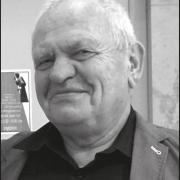
Prof. Dr Günther Keil
1953 in Großenhain
18 February 2020 in Templin
Günther Keil was born in 1953 in Großenhain near Dresden and grew up in Singen am Hohentwiel. He studied biology in Constance, where he graduated in 1978 with a thesis on nuclear-associated protein kinases under Rolf Knippers, the doyen of molecular biology research methods in Germany. He completed his doctoral thesis in Erlangen with Bernhard Fleckenstein, where he worked on herpes viruses, which were to remain his main field of work in the future. In 1981, he joined Ulrich Koszinowski's research group at the Federal Research Centre for Viral Diseases of Animals (now the Friedrich Loeffler Institute) in Tübingen, from where he moved to the island of Riems near Greifswald in 1995.
hile working on primate herpesviruses in Erlangen, he continued his molecular biology studies with murine cytomegalovirus in Tübingen. He then turned his attention to bovine herpesviruses. In recent years, his research activities then focused on the African swine fever virus. Not only these DNA viruses, but also RNA viruses such as the hepatitis A virus, pneumoviruses, flaviviruses or influenza A viruses were among his objects of investigation. His questions related to virological, immunological, methodological and diagnostic aspects as well as to the development of vaccines. He was particularly interested in elucidating the function of viral proteins, enhancing antigen presentation to stimulate T-cell response, manipulating viral genomes for attenuation, and deletion and vector vaccines. He was not a mainstream scientist, but over 150 publications, including in Science and PNAS, attest to his successful scientific work and over 50 co-authors document his successful involvement in the scientific community.
As director and professor as well as deputy director of the Institute for Molecular Virology and Cell Biology at the Riems Institute, he helped to rebuild it and was responsible for biological safety. He was always ready to give advice and support to his colleagues and selflessly shared his immense experience with others.
Günther Keil trained a large number of young scientists. He was an important point of orientation for his students and scientific companions. His enthusiasm for virological issues was contagious and as an experimenter he was a great role model. He expected the full commitment he showed from his students as well, but always supported them regardless of their success. One could learn from him the critical examination of data, especially one's own, as well as a straightforward attitude. His manner was modest and unconventional, but firm. With Günther Keil, we have lost a committed scientist, a highly esteemed colleague and a good friend. Our sympathy goes to his family and friends.
Thomas C. Mettenleiter and Andreas Dotzauer
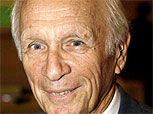
Prof. Dr. Christian Kunz
13 October 1927 in Linz
April 12, 2020 in Vöcklabruck
On Easter Sunday, 12 April, Christian Kunz passed away at the age of 93. He was the founder and long-time director of the Institute of Virology at the Medical Faculty of the University of Vienna (now the Medical University of Vienna) and goes down in medical history as a pioneer and formative figure in the development of virology in Austria and as the father of the TBE ('tick') vaccine.
Christian Kunz was born in Linz on 13 October 1927, studied medicine in Vienna and Innsbruck after the Second World War and joined the Institute of Hygiene at the University of Vienna after obtaining his doctorate in 1954. Initially he worked as an unpaid visiting physician, then as a research assistant. Virology presented itself to the young Christian Kunz in the 1950s as an emerging field of research with many technological innovations and groundbreaking developments, such as the use of cell cultures for virus propagation and the development of polio vaccines.
His scientific interest in virology was encouraged by his boss, Richard Bieling, who enabled him to study at the then strongholds of virology in Germany with top researchers in Freiburg, Tübingen and Marburg. Kunz thus became acquainted with the state of the art in modern virus research at that time and returned to Vienna with great enthusiasm (and equipped with cell cultures for his scientific work). It was precisely at this time that the Vienna Institute had succeeded in isolating a virus as the causative agent of the initially puzzling so-called 'Schneider's' disease, which occurred frequently in the south of Vienna. This virus was then called the early summer meningoencephalitis (FSME) virus and was subsequently at the centre of Christian Kunz's research life.
His publications soon attracted international attention and he was invited to continue his research at the Rockefeller Laboratories in New York with a grant from the Rockefeller Foundation. Thus, in 1961-62, he came to a research institution that was virtually packed with leading virologists of the time and met Max Theiler, among others, who had received the Nobel Prize for Medicine in 1951 for the development of the yellow fever vaccine. This research stay and the contact with outstanding scientists shaped his further career.
Back in Vienna, he was entrusted by Hans Moritsch, the new director of the Hygiene Institute, with the management of a newly established virus department and, using his knowledge acquired in the USA, established a research focus in the field of arthropod-borne viruses (ARBO viruses). The TBE virus also played a central role in this phase. For the time, extremely innovative techniques of specific diagnostics were developed, the circulation of the virus in nature was researched and the sites of human infection in Austria (keyword 'tick map') were determined.
After the death of Hans Moritsch, Heinz Flamm became head of the Institute of Hygiene and made it possible to found a separate Institute of Virology, of which Christian Kunz was appointed head as full professor of virology in 1971. His work on the epidemiology of TBE made clear to him the extent of TBE as by far the most common virus-related disease of the central nervous system in endemic areas and prompted him to use his knowledge to develop a vaccine. This effort, first in cooperation with an English research institute and later with the Austrian pharmaceutical company Immuno, was crowned with great success and led to the production of a highly effective vaccine. Its widespread use brought about an impressive decline in TBE in Austria. As an anecdote, it should be mentioned that he and his colleague at the time, Hanns Hofmann (who has also unfortunately passed away), administered the first experimental vaccine to each other and were relieved to find that it was well tolerated after a few weeks.
The development of the TBE vaccine is probably the achievement with which the name of Christian Kunz is most strongly associated. However, his significance for the development of virology in Austria and in Europe is much broader, especially through his dedicated work in the field of virus diagnostics and medical virology. In 1975 he was a founding member and later for many years chairman of the 'European Group for Rapid Virus Diagnosis', an association of leading medical virologists from several European countries who were primarily concerned with the development of new methods for the early detection of viral infections. This gave viral diagnostics a new and relevant significance for the clinical care of patients. The quality of the impulses set was outstanding, so that this association (which since 1997 has become the 'European Society for Clinical Virology') was able to take on a pioneering role worldwide at that time. Christian Kunz was the chairman of the Austrian Society for Hygiene, Microbiology and Preventive Medicine for several years and a highly respected expert in numerous national and international committees, who put his expertise at the service of health policy decisions. In the mid-1980s, for example, he made a major contribution to the adoption of an evidence-based rather than fear-based approach to the then new problem of HIV infections in Austria.
In 1996 Christian Kunz became emeritus and in 2006 he was awarded the Loeffler Frosch Medal of the international 'Society of Virology' for his outstanding services to the development of virology in the German-speaking world. In recognition of his special achievements, he had already received the Medal of Honour in Gold from the Federal Capital Vienna in 1988, and he was also an honorary member of various national and international scientific societies. One of his great abilities was to bring about a symbiosis of medical-virological research and virus diagnostics with basic molecular research at his institute that was fruitful for all parts. He did this as a leader in a way that almost always made work a pleasure for his staff. This was mainly due to his always benevolent, supportive, encouraging and trusting attitude towards the abilities of his staff, as well as his - even in difficult times - never-ending and contagious sense of humour. I personally and many others who had the good fortune to work with him are grateful not only for his scientific achievements, but also for his generosity, human greatness and friendship.
Franz X. Heinz, oUnivProf. iR, Centre for Virology, Medical University of Vienna
Email: Franz.X.Heinz@meduniwien.ac.at
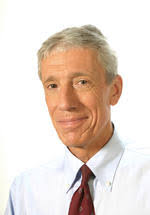
Prof. Dr Michael F.G. Schmidt
1946
17 February 2019
The Society of Virology mourns the death of Michael Schmidt, who passed away on 17.02.2019 at the age of 73.
He began his scientific career in Giessen, where, after studying biology at the Institute of Virology, he did his doctorate under Christoph Scholtissek on the glycosylation of viral glycoproteins. With the help of specific inhibitors, he gained insights into the functional significance of these carbohydrate structures, about which little was known at the time.
During a subsequent DFG-funded research stay at Washington University in St. Louis, USA, he was able to show for the first time that viral glycoproteins are cotranslationally acylated and that this modification is crucial for their membrane anchoring and fusion activity.
He continued this work at the Giessen Institute from 1980 and completed his habilitation there in the subjects of virology and biochemistry at the Department of Veterinary Medicine. In 1986 he accepted a professorship at the University of Kuwait, which he had to give up in the wake of the Kuwait crisis in 1990.
Back in Germany, he took over as head of the Institute for Immunology and Molecular Biology of the Department of Veterinary Medicine at the Free University of Berlin. Here he successfully continued his investigations into the functional significance of postsynthetic modifications of viral envelope proteins and studied the influence of probiotic bacteria on immunity and virus replication. Several of his publications have been cited several hundred times in the scientific literature.
Michael Schmidt has always taken on overarching responsibility, for example as Dean of his department at the FU or in his home community of Seddiner See 40 km southwest of Berlin: here he founded an association to take over the disused village shop in order not to let supply, communication and culture disappear from the village.
All who knew him will have fond memories of his infectious cheerfulness and joy in science.
Hans-Dieter Klenk, Marburg
Detlev H. Krüger, Berlin
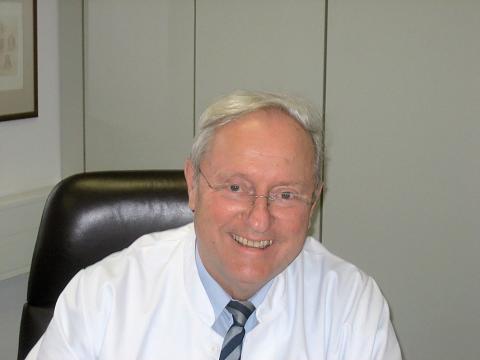
Prof. Dr. rer. nat. Nikolaus Müller-Lantzsch
March 29, 1943 in Görlitz/Neisse
August 02, 2017 in Homburg/Saar
The Society of Virology mourns the death of its former president Professor Dr. rer. nat. Nikolaus Müller-Lantzsch
Nikolaus Müller-Lantzsch held the Chair of Virology at the University Hospital Homburg/Saar until his retirement in 2009.
Nikolaus Müller-Lantzsch was one of the founding members of Society of Virology and was its president from 2005 to 2011. Nikolaus Müller-Lantzsch studied biology at the universities of Hamburg and Freiburg from 1964 to 1971.
After obtaining his doctorate (Dr. rer. nat.) in 1974 with a thesis on transcription in SV40 and polyomavirus at the then Hygiene Institute (Department of Virology) of the University of Freiburg under the supervision of Prof. Richard Haas and Prof. Gerhard Brandner, Nikolaus Müller-Lantzsch worked at the Salk Institute, La Jolla, CA, USA, on the function of virus-specific RNA of the Moloney leukaemia virus. From 1976, he did postdoctoral research at the Institute of Virology at the University of Freiburg under the supervision of Prof. Dr. Harald zur Hausen. In 1981, he completed his habilitation ("Biochemical Characterisation of Epstein-Barr Virus Specific Antigens") at the Medical Faculty of the University of Freiburg. In 1980-1982 he was head of the department 'Research and Development Virology' at the Swiss Serum and Vaccine Institute in Bern. After being appointed to a C2 professorship at the Institute of Virology at the University of Fribourg in 1982, he took up a C3 professorship and the position of Department Director of the Virology Department at the Institute of Medical Microbiology and Hygiene, Saarland University, Homburg/Saar in 1988. In 1995 he was appointed C4 professor. Under his direction, a new institute building was constructed in Homburg and the prerequisites for the appointment as National Reference Centre for γ-herpesviruses were created. In the medical faculty of Saarland University, he held various offices of academic self-administration and was, among other things, dean and dean of studies of the medical faculty from 1998 to 2004. In 2002, he was appointed "Chevalier dans l'Ordre des Palmes académiques" by the French Prime Minister for his services with regard to scientific exchange with French colleagues.
One focus of Nikolaus Müller-Lantzsch's work after 1982 in Freiburg was the molecular biological characterisation of the EBV-encoded proteins EBNA-1, EBNA-2 and LMP and their significance for the biology of EBV. This complex of topics was also pursued by him in Homburg with great emphasis and supplemented by very comprehensive efforts to make these antigens useful in particular for the diagnosis of EBV reactivations. Systematic studies on EBV viral load complemented this important approach. During his time in Freiburg, Nikolaus Müller-Lantzsch made great contributions to the establishment of HIV diagnostics. Companions from this time will remember that the first series of HIV-positive preparations for HIV antibody immunofluorescence (especially the rapid tests necessary in transplantation medicine) were made by him in order to evaluate and demonstrate the feasibility and safety of the preparation. It is also worth mentioning that he was instrumental in designing and establishing computer-assisted virus diagnostics in Freiburg.
In addition to studies on EBV, he focused his scientific work from 1993 onwards on research into human endogenous retroviruses. In a fundamental work, he succeeded in proving that the human endogenous retrovirus HERVK (HML-HOM) has complete open reading frames. In further work, he was able to show that patients with germ cell tumours develop antibodies against viral proteins and that the tumour cells express the viral genes. Finally, the oncogenic potential of HERVK-encoded proteins could be demonstrated in mouse experiments. A large number of national and international collaborations document the high scientific value of this work. Collaboration with scientists from the GDR and Russia was particularly close to his heart. In the course of his work, he supervised a large number of diploma, doctoral and post-doctoral theses. In addition to his research activities and work in various expert committees, the establishment and continuous improvement of the latest diagnostic analysis methods in the context of patient care was an important concern for him.
Nikolaus Müller-Lantzsch was not only highly respected in virology as a scientist, but also extremely valued and popular as a colleague and friend. He always had more in mind than his own research topics and his personal successes. His ability was to see the big picture, seek responsibility and take leadership. This made him a distinguished chair and an outstanding president. We will keep him in lasting memory.
Friedrich Grässer, Homburg
Georg Bauer, Hartmut Hengel and Dieter Neumann-Haefelin, Freiburg
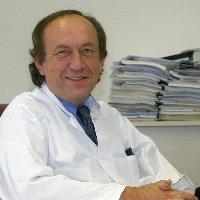
Prof. Dr. Reinhard Kandolf
September 10, 1948
March 31, 2017 in Tübingen
A researcher at heart
Obituary: The virologist, pathologist and native of the Palatinate, Reinhard Kandolf, died completely unexpectedly at the age of only 68.
Prof. Reinhard Kandolf was head of molecular pathology in Tübingen. His field of work was viral myocarditis
(especially picornaviruses). On 31 March 2017, Prof. Reinhard Kandolf, Medical Director of the Department of Molecular Pathology at the University Hospital Tübingen, passed away completely unexpectedly in Tübingen.
Reinhard Kandolf was born on 10 September 1948 in the Upper Palatinate. After attending a humanistic grammar school, he studied medicine at the universities of Erlangen and Munich. His interest in research on the heart was awakened during his doctorate at the Medical Clinic I of the University of Munich under Professor Gerhard Riecker. As a scholarship holder and later research assistant at the Max Planck Institute (MPI) for Biochemistry in Mattinsried in the Department of Virus Research (1981-1993) with Professor Peter Hans Hofschneider, he succeeded for the first time in cloning coxsackievirus B3, a common pathogen of myocarditis.
In 1988, after his habilitation in Experimental Medicine at the Medical Faculty of the University of Munich, he received an endowed professorship in Medical Research at the MPI in Martinsried and then obtained his specialist qualification in Biochemistry. In 1993 he moved to Tübingen as C3 Professor of Molecular Pathology. This was followed by an appointment as Medical Director to the newly established C4 Professorship of Molecular Pathology at the University of Tübingen in 1997, which he held until his sudden death.
His scientific focus was on the field of cardiopathology. Together with his working group and numerous national and international co-operating partners, he published 300 scientific papers, many in highly renowned scientific journals. His scientific work has been honoured by various awards such as the Max Planck Research Prize for international cooperation in the field of viral aetiology of cardiovascular diseases and by the award of a visiting professorship at the Universita degli Studi di Roma Tor Vergata.
Reinhard Kandolf was also closely associated with the German Societies of Pathology, Cardiology and Paediatric Cardiology for many years. He was active in various positions in the Medical Faculty of Tübingen for many years.
With the death of Reinhard Kandolf, the University Hospital of Tübingen, German pathology and cardiology have lost an extraordinary person, a formative personality and an outstanding scientist. In his human way, Reinhard Kandolf accompanied many students as a mentor on their way into research and patient care. All who knew him will remember him with gratitude.
Prof. Karin Klingel,
Deputy Medical Director,
Department of Molecular Pathology
University Hospital Tübingen
Other sources:
Prof. Thomas Mertens, Ulm University Hospital
Image: Archive image University Hospital Tübingen
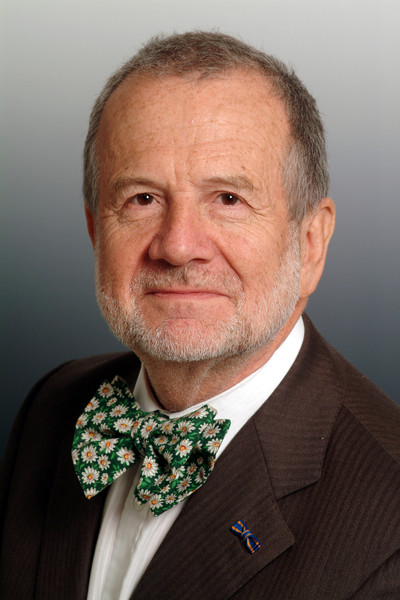
Prof. Dr. Dr.h.c.mult. Marian Horzinek
3 October 1936 in Katowice
28 July 2016
Obituary Prof. Dr. Dr.h.c.mult. Marian Horzinek
Prof. Marian Horzinek was a precious specimen of the already almost forgotten species of the polyglot and urbane universal scholar.
He studied veterinary medicine in Giessen and Hanover. After intermediate stations in Venezuela and Tübingen, he became head of department and professor of virology and viral diseases at Utrecht University, where he subsequently headed the Institute of Veterinary Research and the Graduate School of Animal Health.
Prof. Horzinek's research dealt with many aspects of virology, immunology and vaccinology and was reflected in more than 300 publications and 30 textbooks. His special scientific focus was on coronaviruses and infections in cats. In addition, he was an excellent teacher with numerous successful students - for example, his very first doctoral student was the renowned virologist Prof. Albert Osterhaus and his colleagues were appointed to more than 10 chairs of virology. The authors of this obituary are also indebted to Prof. Horzinek.
In addition to visiting professorships at Cornell University and the University of California Davis, Prof. Horzinek has been awarded honorary doctorates (Ghent, Hanover, Uppsala, Vienna, Guelph) and a variety of other prizes. He served as editor, president and founding member of several veterinary professional organisations and journals. In addition, he contributed his valuable experience as a long-standing board member of the scientific advisory boards of universities in Vienna and Barcelona.
Prof. Horzinek could philosophise excellently and present complex and also controversial topics in a pointed and eloquent manner. As a veterinarian and scientist, he was particularly concerned with bringing clinics and research closer together and beating the drum for fact-based medicine. In this sense, he was an early pioneer and eloquent advocate for "precision medicine", which is on everyone's lips today. His farsightedness, his immense horizon of knowledge, his critical-constructive spirit and, last but not least, his mischievous and extraordinary humour full of etymological allusions, anecdotes and poetry remain unforgotten.
Dr. med. vet. Andreas Bergthaler
CeMM Research Center for Molecular Medicine, Vienna
Dr. med. vet. Andreas Pichlmair
Max Planck Institute of Biochemistry, Munich
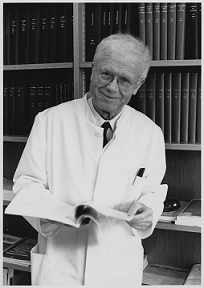
Prof. Dr. med. Hans Joachim Eggers
July 26, 1927 in Baumholder-Nahe
May 05, 2016 in Cologne
The Society of Virology mourns the loss of
Professor Dr. med. Hans Joachim Eggers
Hans Joachim Eggers held the Chair of Virology at the University of Cologne until his retirement in 1994.
Hans Joachim Eggers was an important virologist "of the first hour" in Germany. While working in the United States, he was one of the founders of research in the field of selective antiviral therapy (1963). Numerous publications on antiviral chemotherapy and resistance development resulted from this work, in which the hypothesis was also formulated that the combination of two substances against different target structures should be used to reduce resistance selection.
Furthermore, essential fundamental findings on RNA and protein synthesis in picornaviruses (especially polioviruses), on pathogenicity factors and on the development of the cytopathic effect, which were obtained for the first time by molecular biology, can be traced back to his research results. As a virologist and physician, he has also regularly worked on clinical virological issues. The high international recognition of his work is expressed not least in the fact that 26 of his approximately 200 publications have appeared in the best interdisciplinary journals (Nature, Science, PNAS, J Exp Med, Lancet).
Born into a pastor's family in Baumholder, Hans Joachim Eggers studied medicine at the universities of Cologne and Heidelberg from 1947 to 1953 after completing his A-levels in Sobernheim. He began his scientific work at the Biochemistry Department in Cologne as a doctoral student of Prof. Dr. Dr. h.c. Ernst Klenk. His love of virology was already awakened during his work at the University Neurology Clinic in Cologne (1953-1957). This initial period in Cologne was interrupted by a period of study (polio neutralization) at the Karolinska Institute (Prof. Dr. Sven Gard), Stockholm, and a "compulsory assistant period" in Hamburg (clinical bacteriology and serology). From 1957 to 1959 he was a fellow of the Children's Hospital Research Foundation in Cincinnati, Ohio, with Prof. Dr. Albert B. Sabin and then a research associate with Prof. Dr. Frank L. Horsfall, Jr. and Prof. Dr. Igor Tamm at the Rockefeller Institute, New York. There he was Assistant Professor from 1961-1964. In 1965 he returned to Germany with his wife Gisela and their 3 children Carsten, Jens and Susanne, where he was head of department at the MPI for Virus Research in Tübingen from 1965-1966. In 1966 he was appointed to the Chair of Virology at Justus Liebig University Giessen and in 1972 to the newly established Chair of Virology at the University of Cologne. After his retirement, he was a visiting professor of virology at the Institute for Molecular Virology in Madison, Wisconsin.
Hans Joachim Eggers was a highly active founding member and honorary member of our Society and a member of numerous other scientific societies, including a member of the Senate of the Leopoldina.
Everyone who knew Prof. Eggers, especially his students, appreciated him as an outstanding scientist who always followed this calling with the greatest seriousness and sincerity. But with Hans Joachim Eggers we also lose a highly educated (Mozart expert), lovable person and always committed colleague and friend who was open to discussion. He will remain in our memory.
The funeral service will be on 21 May at 10.30 a.m. in the mourning hall of Melaten Cemetery, entrance Piusstraße, 50931 Cologne. The funeral will follow.
Thomas Mertens
President of the GfV
Prof. Dr. Jean Lindenmann
18 September 1924 in Zagreb
15 January 2015
Prof. Dr Jean Lindenmann
The first description of interferon in 1957 by Jean Lindenmann and Alick Isaacs is a milestone in biomedical research. Jean Lindenmann died on 15 January 2015, a few months after his 90th birthday, which he celebrated with close former colleagues on Lake Zurich.
Jean Lindenmann was born on 18 September 1924 in Zagreb, Yugoslavia (present-day Croatia).
He obtained the Matura type C at the Oberrealschule in Zurich and studied first physics and then medicine at the university. The dropping of the atomic bomb on Hiroshima prompted him to change his studies. He then worked as an assistant at the Hygiene Institute of the University under Prof. Hermann Mooser. In addition to bacteriological-diagnostic work, he was already concerned at that time with viral interference, whereby infection with a first virus protects against a second infection with the same or a completely different virus. The prevailing opinion was that the first infection would block or deplete important components in the infected cell, which would then no longer be available to the second virus. The budding researcher found in his own ingenious experiments that this was probably not true.
In 1956, he received a scholarship from the Swiss Academy of Medical Sciences to devote himself entirely to virology for a year at the National Institute for Medical Research in Mill Hill, London. He began a project on polioviruses under C.H. (later Sir Christopher) Andrewes and one day unexpectedly met Alick Isaacs, who was researching viral interference in the neighbouring laboratory. The two began an intense collaboration that culminated in the discovery of interferon within a few months. They found that the first virus causes infected cells to secrete a cellular substance that acts as a messenger to protect neighbouring cells from reinfection. Incidentally, the name interferon is owed to Lindenmann's old love of physics and its electrons, muons and mesons. Interferon with its manifold antiviral, antitumour and immunomodulatory effects became a success story.
Jean Lindenmann initially returned to the Hygiene Institute in Zurich as a senior assistant and in 1960 took up a position as a "second-class bacteriologist" at the then Federal Health Office in Bern. There, thanks to fortunate circumstances, he discovered that there was a hereditary resistance to influenza virus infections in certain laboratory mice. Initially, he thought it was a particularly good immune response. Later it became clear: it was interferon again. The resistance gene (MX1) is switched on by interferon. It also occurs naturally in humans, together with a second gene (MX2), which is part of the interferon response against HIV-1. From 1962, Jean Lindenmann worked as Visiting Assistant Professor at the Department of Microbiology at the University of Florida in Gainesville, where he began pioneering work on viral oncolysis and postoncolytic immunity. In 1964 he was appointed Extraordinarius for Experimental Microbiology at UZH, promoted to full professor in 1969 and in 1980 appointed full professor for Immunology and Virology and director of the institute of the same name. The institute becomes an El Dorado of creative thinking and research.
Jean Lindenmann was a gifted academic teacher who knew how to captivate his audience. Thanks to a natural curiosity, he was open to everything new. This resulted in an innovative textbook for beginners in immunology, structured in the style of a modern learning programme. He also knew how to address the general public clearly on current issues in medicine and the natural sciences. He was a member of the Research Council of the Swiss National Science Foundation and many other committees. He received numerous honours, such as the Georg Friedrich Goetz Prize in 1969, the Swiss Cancer Prize in 1964 and 1987 (together with Charles Weissmann), the Robert Koch Prize in 1973, the Marcel Benoist Prize in 1977 and the European Virology Award of the European Society of Virology in 2007.
After his retirement, Jean Lindenmann was able to devote himself entirely to his diverse interests in literature, art and music. He was deeply involved in the historical and sociological aspects of science and had no sympathy for the extreme view of certain sociologists who argued that scientific facts were merely based on social agreements. In his last autobiographical work he wrote: "Thus, I am outing myself as a naive realist. Sociologists and philosophers of science will dismiss me as an old fool. Too bad - tant pis pour moi - it was great fun". He will remain in our lasting memory, not as a fool,
but as an extraordinarily creative and critical personality with a great sense of humour.
Otto Haller
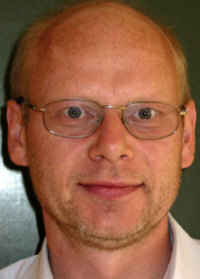
Prof. Dr Axel Rethwilm
3 August 1959 in Bielefeld
29 July 2014
The Society of Virology mourns the death of Professor Dr Axel Rethwilm
Axel Rethwilm, holder of the Chair of Virology at the University of Würzburg, passed away in the night of 29 July at the age of only 54.
Axel Rethwilm was born on 3 August 1959 in Bielefeld. He studied human medicine at the University of Freiburg. After his doctorate, he began his scientific career in 1985 in the Department of Virus Research at the DKFZ Heidelberg.
In 1987, he moved to the Institute of Virology and Immunobiology at the University of Würzburg. His habilitation in virology followed in 1992 and his appointment as C3 professor of retrovirology in 1995. From 1998 to 2003 he was director of the Institute of Virology at the Technical University of Dresden. He then took over the Chair of Virology at the Institute of Virology and Immunobiology at the University of Würzburg.
Axel Rethwilm initially devoted himself to foamy viruses. He succeeded in the first molecular cloning and characterisation of a foamy virus genome. This was followed by groundbreaking scientific work on various aspects of the infection cycle of foamy viruses, including the infection process and tropism, the replication of the viral genome and the assembly of the viral particle. In addition, Axel Rethwilm developed a special scientific interest very early on regarding the development and use of foamy viruses as a vector platform for applications in the context of somatic gene therapy.
Basic virological science, application-oriented research and also clinical virological aspects, made him a very internationally recognised scientist and university lecturer.
The Funding of young scientists was very important to him. Cooperation with universities in Africa and the promotion of young scientists there were particularly close to his heart. He was the spokesperson for the first German-African Research Training Group, in which outstanding young researchers from Germany and Africa worked on the topic of "HIV, AIDS and associated infectious diseases". The German Research Foundation funded the Research Training Group from 2008.
Axel Rethwilm was a very active member of the GfV, also on the advisory board of our society. All those who knew him personally appreciated his always sincere, unconventional, open to discussion and at the same time always friendly manner.
We bid farewell to an outstanding scientist, and highly esteemed colleague and friend.
The burial of his urn will take place on 26 September at 1 p.m. at the Waldfriedhof in Würzburg.
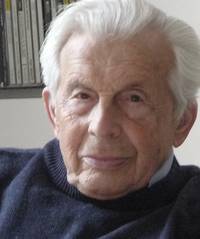
Professor Karl Eduard Schneweis
24 April 1925 in Koblenz
7 February 2014
The Society of Virology mourns the death of Professor Karl Eduard Schneweis (Bonn). Born in Koblenz in 1925, he belonged to the founding generation of medical virology in Germany. After studying medicine in Bonn and Göttingen, he was an assistant physician at the Medical Examination Office in Hanover and at the Hygiene Institute in Hamburg.
At the Max Planck Institute for Tissue Engineering in Berlin-Dahlem, he developed new cell culture techniques with a special focus on histocompatibility antigens. From 1959, he established virological diagnostics at the University of Göttingen. In the process, he succeeded in serologically differentiating herpes simplex viruses and distinguishing between the two human simplex virus types for the first time. Professor Schneweis therefore deserves outstanding credit for the discovery of the herpes simplex virus type 2.
In 1968, he was appointed to Bonn to the Institute for Medical Microbiology and Immunology, then headed by Henning Brandis. The university hospital of the then federal capital thus got a virology department for the first time. In the 1970s, he established an efficient and highly respected medical virology in Bonn, whose research activities focused on the clinical picture and treatment of herpes virus infections. In the 1980s, the clinical virology of HIV infection became another field of work for Bonn virology. Professor Schneweis' laboratory was among the first institutions in Germany to offer complete HIV diagnostics. Therapy control in the use of early HIV drugs was initially carried out by cell culture experiments and was later switched to molecular biological methods.
Karl Eduard Schneweis was a sought-after member of many authoritative committees, working groups and professional societies. Until the end of his service, he headed the National Reference Centre for Herpesviruses in Bonn. He advised ministries and public health institutions and trained generations of students and graduates as an academic teacher.
With Karl Eduard Schneweis we lose a kind and highly respected colleague, mentor and friend.
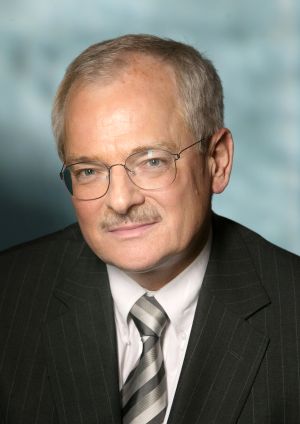
Professor Reinhard Kurth
30 November 1942 in Dresden
2 February 2014 in Berlin
On 2 February 2014, virologist and physician Prof. Dr. Dr. h.c. Reinhard Kurth after a long, serious illness at the age of 71. He was an early member of Society of Virology (GfV).
After his licence to practise medicine, Reinhard Kurth initially devoted himself entirely to basic virological research in the field of immunobiology and pathogenesis of retroviruses.
When a human retrovirus (HIV) was identified as the causative agent of AIDS at the beginning of the 1980s, Reinhard Kurth, as Head of the Virology Department at the Paul Ehrlich Institute, was also highly committed to the work of clinical virology and the fight against viral diseases and played a key role in the rapid establishment of the first tests to detect HIV infections.
Looking back, it can probably be said that this was the moment in his life that steered him towards his outstanding work as a scientifically minded shaper of the healthcare system, who "saw public health not as a label, but as a scientific challenge" - as Joachim Müller-Jung put it in his obituary in the Frankfurter Allgemeine Zeitung.
In this sense, Reinhard Kurth as a virologist, first in his capacity as President of the Paul Ehrlich Institute, then as President of the Robert Koch Institute, structured and led these federal institutes within the portfolio of the Federal Ministry of Health and shaped them far into the future.
However, Reinhard Kurth was also always keen to inform the public comprehensively and in understandable terms, to educate them in crisis situations and to reassure them with competent information. Like no other, he has brought the health policy aspects of virology to the outside world and given them the appropriate visibility.
The two virological societies, Society of Virology and the German Association for the Control of Viral Diseases (DVV), always found him to be an excellent, understanding and reliable partner when it came to the interests of scientific and clinical virology and owe him great thanks and recognition.
Dr Regina Allwinn, MD, private lecturer
1 May 1961
25 November 2013 in Berlin
We mourn the loss of our GfV member and esteemed colleague
Private lecturer Dr. med. Regina Allwinn
who passed away after a serious illness at the age of 52 on 25 November 2013.
With Dr Allwinn, we are losing a lovely colleague who, as senior physician and head of the travel medicine vaccination outpatient clinic, worked with great dedication for the well-being of patients for over 17 years at Frankfurt University Hospital.
She was particularly passionate about advising travelers in the vaccination clinic and researching tropical viruses. The synthesis of virology and travel medicine as well as the combination of family and career were of great importance to Dr. Allwinn. With her passing, we have not only lost an outstanding clinical virologist, but also a humorous and cheerful colleague whose honest and direct manner often showed us what really matters in infectious disease medicine and in life.
We are saddened and deeply mourn her passing.
On behalf of Society of Virology (GfV)
Prof. Dr. med. Thomas Mertens
President

Contact
You can send us questions, feedback and requests by e-mail(geschaeftsstelle@g-f-v.org) or by using the contact form.

